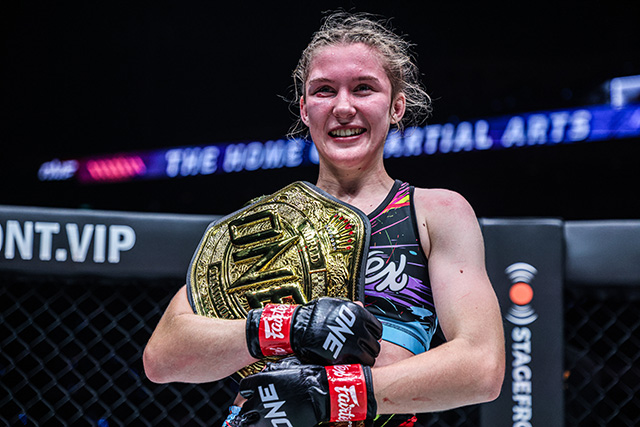UFC Bantamweight Isabela de Padua Handed 2-Year Suspension for Nandrolone Metabolite
Isabela de Padua Accepts Sanction for Violation of UFC Anti-Doping Policy https://t.co/KI42bZHr8W
— USADA | UFC Anti-Doping Program (@USADA_UFC) February 27, 2020
Isabela de Padua will be forced to sit out for two years following her suspension for a banned substance.
Advertisement
Testing positive for metabolites of nandrolone, an anabolic steroid, she will be eligible to return to active competition in November 2021, dating back to her first positive test. She first failed an in-competition drug test after her November bout, and then similarly tested positive for the same substance in an out-of-competition test a month later.
A new member of the USADA testing pool, had she disclosed she had
recently taken banned substances, she would have only held out of
competition for a few months provided she passed drug tests. The
Comissao Atletic Brasileira de MMA (CABMMA) has recognized her
USADA suspension, and may also impose additional fines or
punishments within the confines of its own policy.
The Brazilian fighter dropped her first career bout in 2015, only to bounce back with five consecutive victories that earned her a spot in the roster. In her promotional debut, she faced Ariane Lipski at UFC Fight Night 164 in November, and lost a decision to her fellow countrywoman.
USADA's statement regarding de Padua is as follows:
"USADA announced today that Isabela de Padua, of Sao Paulo, Brazil, has accepted a two-year sanction for a violation of the UFC® Anti-Doping Policy after testing positive for a prohibited substance.
De Padua, 28, tested positive for 19-norandrosterone (19-NA), the main urinary metabolite of nandrolone (19-nortestosterone) and other 19-norsteroids following an in-competition test on November 16, 2019 where she lost by unanimous decision and an out-of-competition urine test conducted on December 19, 2019. In accordance with standard practice, the exogenous, or non-natural, origin of the 19-NA was further confirmed by sophisticated carbon isotope-ratio mass spectrometry (GC/C/IRMS) analysis, which can reveal the presence of anabolic agents. In this case, the GC/C/IRMS analysis result was consistent with the exogenous origin of 19-NA. 19-norsteroids, including nandrolone and its precursors, are non-Specified Substances in the class of Anabolic Agents and prohibited at all times under the UFC Anti-Doping Policy and UFC Prohibited List.
Upon being added to the UFC Anti-Doping Program, athletes are required to declare all medications and supplements they have used in the previous 12 months. An athlete who declares the prior use of a prohibited substance will not be deemed to have committed a violation but, depending on the substance, may be required to refrain from competition for a period of at least six months and provide at least two negative samples. De Padua did not declare the use of nandrolone, or any 19-norsteroids, on her onboarding declaration forms.
De Padua’s two-year period of ineligibility began on November 16, 2019, the date her first positive sample was collected. As the regulatory body that sanctioned de Padua’s bout on November 16, 2019, the Comissao Atletica Brasileira de MMA (CABMMA) has recognized USADA’s sanction subject to any additional fines it may impose in accordance with the CABMMA Anti-Doping Policy."
Related Articles







